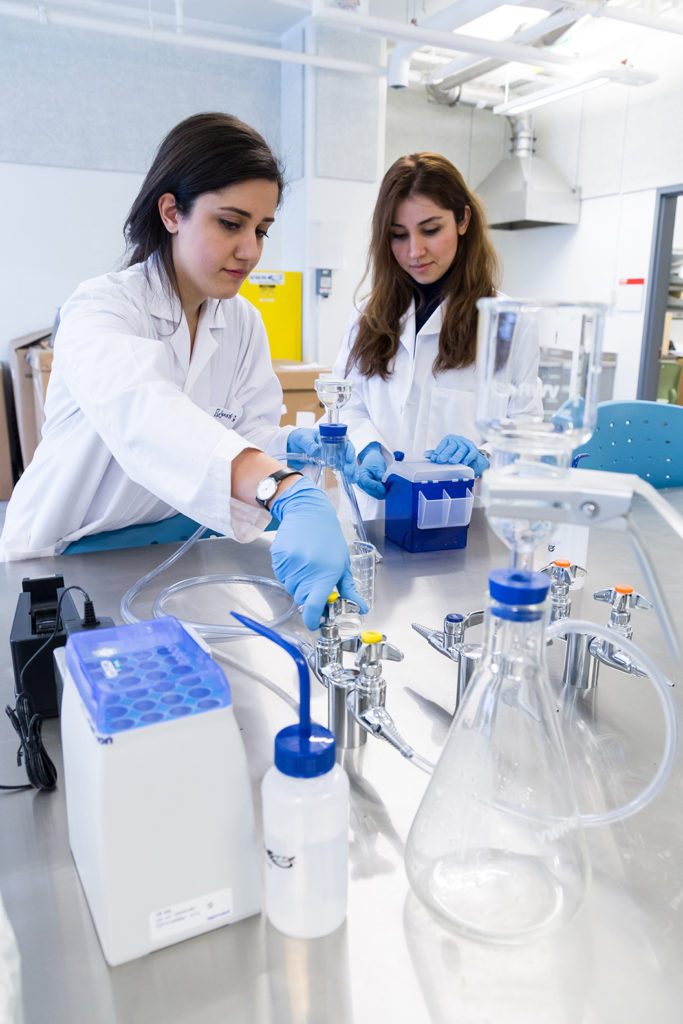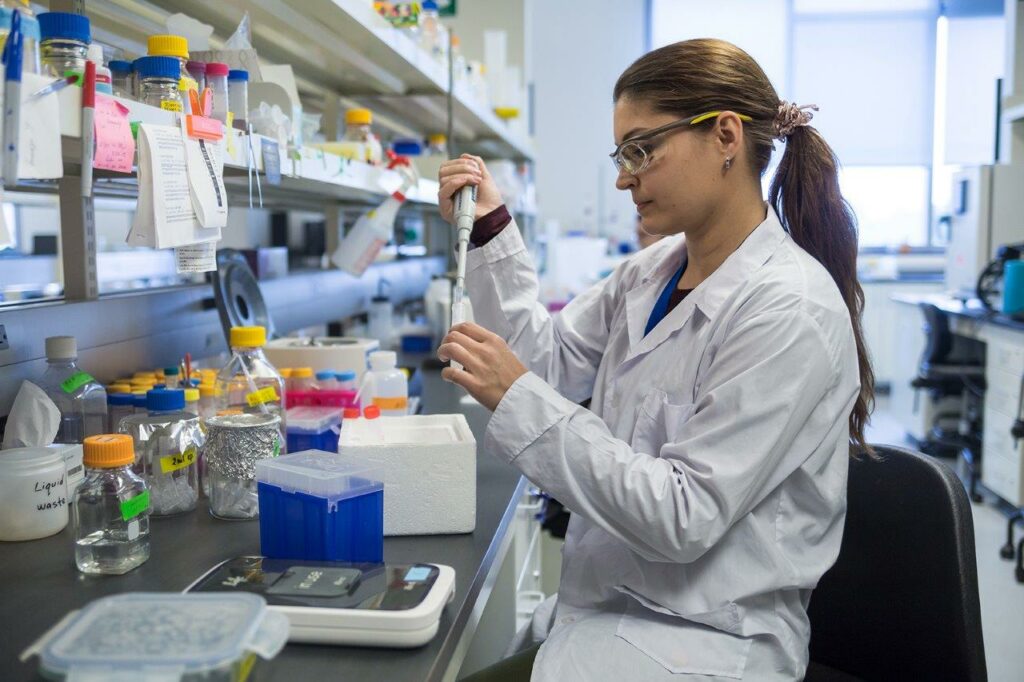What does “research opportunity” mean?
As a major hub of scientific research, the Faculty of Science provides a wide variety of opportunities for our undergraduate students to become involved in research activities.
As an undergraduate student, you will hear the word research often. Sometimes you will be told to do research in order to write an essay or a lab report. This is a kind of research that you will do very frequently. That is not what we mean by “research opportunity”. More generally, research is the activity that advances knowledge – i.e. creates new knowledge. In science disciplines, it often consists of designing an experiment to test a hypothesis. That’s what many professors are doing in their research labs.
Research labs in physics, chemistry, biology and mathematics are where professors, graduate students, postdoctoral fellows, and research associates do their work. So, for an undergraduate, “research opportunity” means the opportunity to participate in a research lab under the supervision of others in that lab.
It is an opportunity to learn advanced lab skills, use equipment that you would not typically use in an undergraduate lab, interact with graduate students, learn in-depth in a particular field, and actually contribute to the advancement of scientific knowledge.

Getting involved in research
There are many ways you can participate in research, including research practicum courses, RAY positions, NSERC Undergraduate Summer Research Awards, Capstone Project Courses, or volunteering.
Watch our students talk about their research opportunities by scrolling down.
Research Practicum Courses
Some disciplines offer zero credit research practicum courses. These are a mechanism for recording on your transcript that you participated in a research lab. Because they are zero credit you do not pay for them; but you do get a pass or fail grade depending on whether you met expectations for the research. Those expectations will be worked out between you and the professor at the time you enrol in the course. Remember that the professor and other members of the research team are committing their time to support and train you and they expect to get results for that from you!
RAY Positions
Some professors advertise positions via the Research@York (R@Y) program. As you will see from the website these are paid positions; students apply and are selected by the professor according to who best meets the skills for the position. The nature of the involvement in research can vary quite significantly, but this is a great way to help finance your studies at York.
NSERC USRAs
The Natural Sciences and Engineering Research Council (NSERC) offers Undergraduate Summer Research Awards (USRAs) to undergraduate students in universities across Canada. York typically has between 30 and 40 such awards every summer. They are prestigious and highly competitive – you will need a high average to win one – and they offer a well paid summer “job” working in a research lab, fully immersed without distraction! This is perhaps the Cadillac of undergraduate research experiences.
Capstone Project Courses
Most honours programs require a final year project course. These are for-credit courses (i.e. you pay for them and they count towards meeting your required credits) and they typically involve working fairly independently on a research project that you have planned with the help of a supervising professor. The projects vary according to your interests and those of your supervisor, and sometimes they lead to publications in scientific journals or conference proceedings.
Volunteering
Get to know your professors, read about their research, and then talk to them! They will love that you are informed and interested. This approach can take you places you might not have dreamed of!
Biology Field Courses
Field biology courses are an integral part of training in ecology and conservation and an excellent way for students to experience what it is like to be a field biologist. The Department of Biology in the Faculty of Science organizes several such courses for credit, in which undergraduate students are immersed for two weeks in a setting where they learn field methods, how to collect data, how to conduct field experiments and the natural history and ecology of plants and animals. For more details, visit the biology department webpage.
Summer Undergraduate Research Conference
Every summer, the Faculty of Science hosts an Undergraduate Research Conference. The event is an opportunity for recipients of summer research awards, including NSERC Undergraduate Summer Research Awards (USRA) and York Science Scholars Awards (YSSA), to present their summer research projects and to meet other awardees.
Previous Conferences

Raafia
Biology Graduate
Inspired to continue research on the link between the environment and human health
Bahar
Biology Graduate
Dental School Student
Anthony
Biophysics Graduate
Graduate Student in Medical Biophysics
